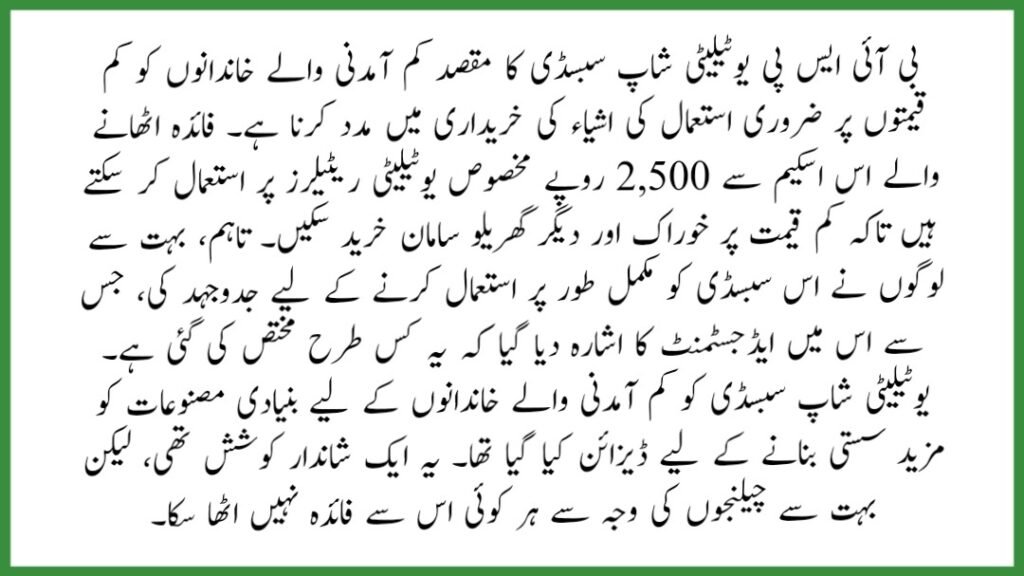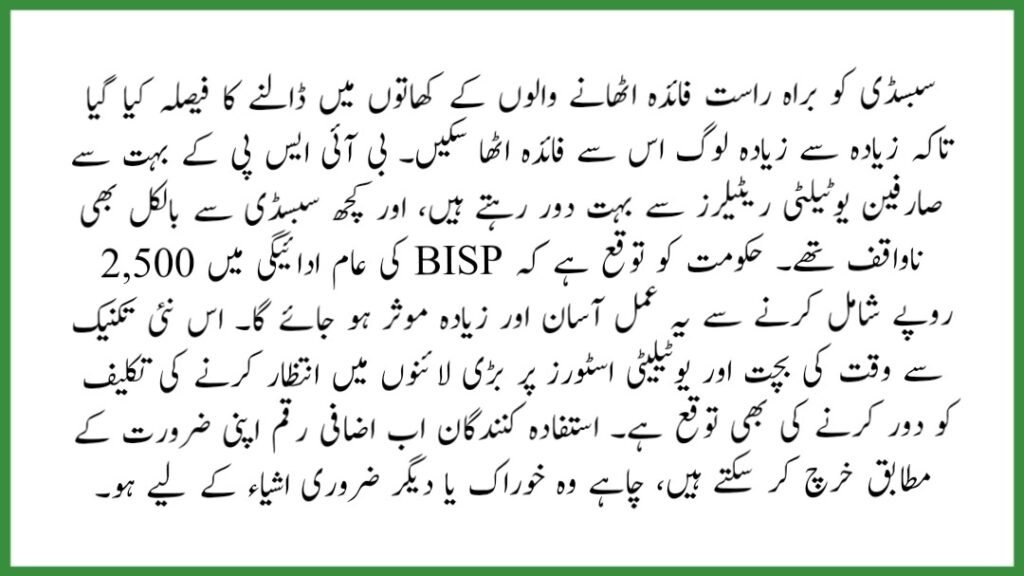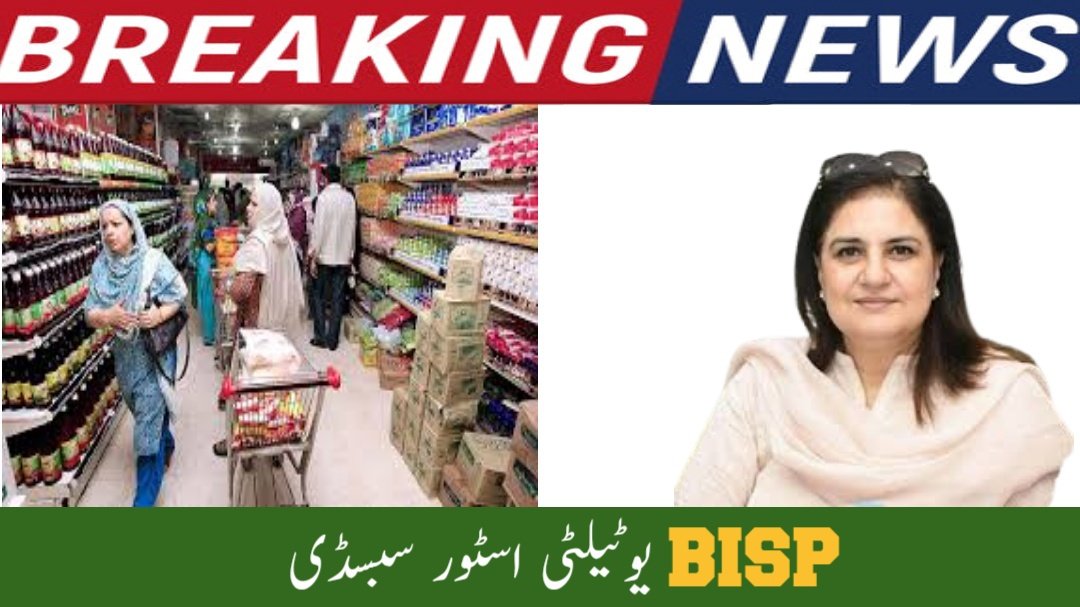The Benazir Income Support Program (BISP) provides financial support to Pakistan’s low-income families every three months. In addition, BISP users can receive a Rs 2,500 subsidy for grocery purchases at utility retailers. However, there have been some changes in how this subsidy is distributed. This article explains how to apply for the subsidy, who is eligible, and how to get the funds.
| Key Points of BISP Utility Store Subsidy | Details |
| Aid Amount | Rs. 105,000 every three months |
| Additional Subsidy | Rs. 2,500 for utility store purchases |
| New Method | Direct transfer to beneficiaries’ BISP accounts |
| Total Received | Rs. 13,000 every three months |
Understanding the BISP Utility Store Subsidy
The BISP utility shop subsidy is intended to assist low-income families in purchasing necessary consumables at reduced prices. Beneficiaries could use Rs 2,500 from this scheme at specified utility retailers to purchase food and other home supplies at a reduced price. However, many people struggled to make full use of this subsidy, prompting adjustments in how it is presently allocated. The utility shop subsidy was designed to make basic products more affordable for low-income families. It was a wonderful endeavor, but not everyone could benefit from it due to a number of challenges.
Also Read: New Registration Camps Set Up for CM Maryam’s ‘Apni Chat Apna Ghar’ Program
Common Problems with the Utility Store Subsidy
Although the subsidy was beneficial, many BISP recipients encountered difficulties when attempting to use it. Here are some of the major issues: Many people live in distant places with no utility stores. Many beneficiaries were unaware that they were qualified for the subsidy. Long queues at utility retailers stopped many people from using their discounts. Some people had difficulty finding time to visit the stores. Due to these issues, the government has decided to discontinue the utility shop subsidy and now provides the Rs 2,500 directly to beneficiaries.

New Method of Receiving the Subsidy
To address these issues, the government has modified the way the Rs 2,500 subsidy is distributed. Rather than forcing beneficiaries to visit utility retailers, the subsidy will now be sent directly into their BISP account. This implies that every three months, when beneficiaries get their regular payment of Rs 10,500, they will now receive a total of Rs 13,000. This includes the Rs 2,500 subsidy.
How to Access the Subsidy Payment
Beneficiaries can obtain the Rs 2,500 subsidy by visiting their nearest BISP Cash Center, Jazz Cash Account, or one of BISP’s six partner banks. When you get your monthly BISP payment, the subsidy amount will already be included. Ensure you receive the full payment (Rs 13,000 every 3 months). Collect any remaining scholarship funds for your children, if applicable. If you are having trouble with your payment, file a complaint. This new approach makes it easier for beneficiaries to receive their subsidies without needing to visit utility outlets.
Also Read: Nadra ID Card Tracking: How to Check Status in 2024
Why the Government Changed the Subsidy Method
The decision was made to put the subsidy directly into beneficiaries’ accounts so that more people may profit from it. Many BISP customers live far from utility retailers, and some were unaware of the subsidy at all. The government expects that by include the Rs 2,500 in the normal BISP payment, the process will be simplified and more efficient. This new technique is also expected to save time and alleviate the discomfort of waiting in large lines at utility stores. Beneficiaries can now spend the additional money as they need, whether it’s for food or other vital items.

Conclusion
The BISP Utility Store Subsidy has been replaced by a direct payment mechanism, making it easier for low-income families to obtain financial assistance. Instead of visiting utility retailers, beneficiaries will receive an additional Rs 2,500 added to their normal BISP payment of Rs 10,500, for a total of Rs 13,000 every three months. This adjustment is intended to make the subsidy more available to everyone, particularly those in distant locations or those who were unaware of the subsidy.

